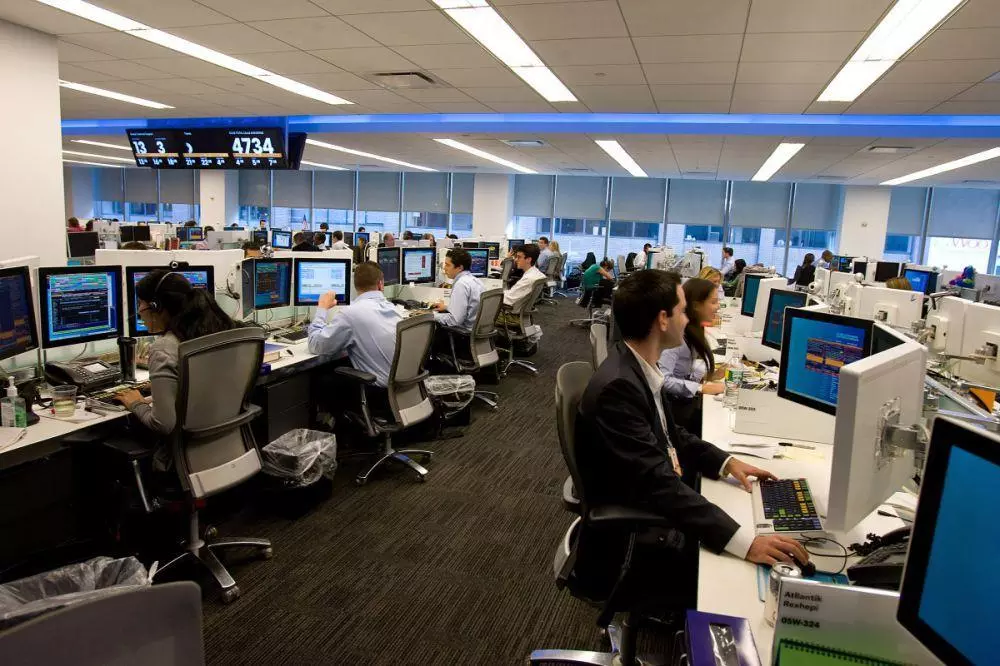While Bloomberg continued to command the lion's share of financial market spending on news, data and analysis in 2016, the financial firm saw its terminal user base drop for only the second time in its 36-year history.

Bloomberg suffered its second-ever drop in the number of terminals sold since its inception ©BBN
Rise of Overall Spending in Financial Data
Amid a fierce competition with Thompson Reuters, the renowned company saw the number of its subscribers shrink following invesment banks' cutting costs measures. Bloomberg suffered its second-ever drop in the number of ubiquitous terminals dotting global trading desks as it fell victim to cost cutting by the finance industry. The number of Bloomberg’s distinctive black terminals, used daily by bankers, traders and money managers, fell by 3,145 last year to just under 324,500, down nearly 1% from 2015, as stated by the Financial Times. Although the drop is a modest one, it is only the second contraction in terminal numbers since the company was founded by former New York Mayor Michael Bloomberg in 1981.
The other decline followed the financial crisis in 2009, when the company lost 20,000 terminals. Users typically pay an annual fee of between $20,000-$25,000 for the privilege of running a single proprietary Bloomberg machine, with the terminal subscriber base standing at 325,000 in October 2016. The $22,000-a-year terminal has come to be a key tool for investment bankers, but its cost has in recent years become a source of tension as financial firms try to keep a tighter control on budgets. A combination of more stringent capital rules for lenders, low interest rates and a shift towards electronic trading have all weighed on the profitability of Bloomberg’s core customer base — large investment and alternative firms.
Fierce Competition with Thompson Reuters and Other Top Firms
JPMorgan Chase, Bloomberg's second-biggest client, was reportedly negotiating a contract with Thomson Reuters in January 2016 to replace at least 2000 terminals worldwide during the next two years, saving the firm anywhere up to $36 million in charges. Bloomberg also faces a fierce competition with Down Jones, Interactive Data Corporation and Fact Set in the news and data sectors. Despite the drop in terminal numbers, Bloomberg’s market share edged higher in 2016 to 33.4%, driven by other businesses, in particular its pricing and evaluation feeds.
The company’s revenue from financial markets rose 3.4% to $9.2bn, according to Goldman Sachs. Market share at Thomson Reuters, Bloomberg’s biggest rival, contracted to 23.1% in 2016 from 24.2% the previous year, while revenues remained flat. It is important to bear in mind that the combination of budget cutbacks in financial institutions and the rise of sophisticated machines that replace traders has made it difficult for all vendors to maintain the number of terminals.
Bloomberg will Bounce Back
The fall in the number of terminals was also due to staffing reductions across the industry. It is noteworthy to state that Bloomberg offers mobile access via smartphones, tablets and laptops for senior bankers and intuitive exporting of extensive company information for junior professionals. Bloomberg is adamant that it can easily bounce back by focusing on emerging markets by providing a world-class service to influential clients and businesses. According to Morgan Stanley, overall spending on data — the lifeblood of the industry — reached a record $27.5bn in 2016, up more than 3% on the previous year.
Despite the black box push-back, the privately held financial software, data, and media company goes from strength-to-strength, generating $9 billion in revenue last year and cementing founder Michael Bloomberg's place at number ten in Forbes' annual list of the wealthiest people on earth. In spite of pessimistic forecasts from market participants surveyed last year, Bloomberg performed surprisingly well in the Americas and Asia, although it underperformed in Europe and the EMEA.




Leave your comments
Post comment as a guest